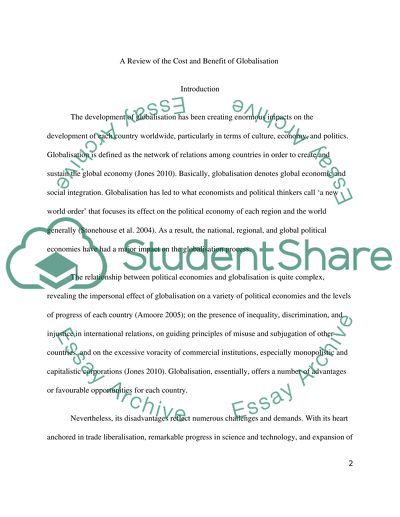Cite this document
(“A Review of the Costs and Benefits of Globalisation Essay”, n.d.)
Retrieved from https://studentshare.org/environmental-studies/1416424-a-review-of-the-costs-and-benefits-of-globalisation
Retrieved from https://studentshare.org/environmental-studies/1416424-a-review-of-the-costs-and-benefits-of-globalisation
(A Review of the Costs and Benefits of Globalisation Essay)
https://studentshare.org/environmental-studies/1416424-a-review-of-the-costs-and-benefits-of-globalisation.
https://studentshare.org/environmental-studies/1416424-a-review-of-the-costs-and-benefits-of-globalisation.
“A Review of the Costs and Benefits of Globalisation Essay”, n.d. https://studentshare.org/environmental-studies/1416424-a-review-of-the-costs-and-benefits-of-globalisation.


